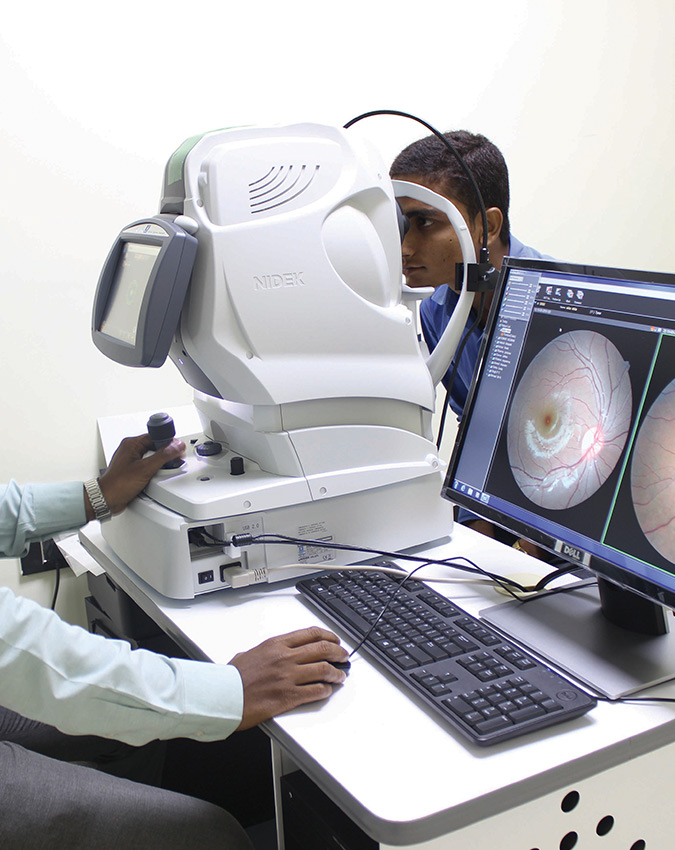
Glaucoma is the name for various eye related disorders, in which the nerve of sight is damaged by the pressure inside the eyeball. In the most common form of glaucoma, there are no signs until extremely late in the disease. The peripheral vision is gradually lost, however this is often not observed in everyday living until the disease is advanced and finally affects the central vision.
Therefore, glaucoma is also known as the “thief of sight.” Other forms of glaucoma can result inacute eye pain as well as rapid visual loss.
Glaucoma is the most serious eyesight threatening condition of the eye. It usually manifests as a painless gradual loss of vision. The lost vision can never be recovered. However, medical or surgical treatment can prevent or retard further loss of vision.
Risk factors for glaucoma consist of growing age and family history. Ideally, all people who have crossed 40years of age, with a family history should have an eye check by an ophthalmologist.

- Femto Laser Cataract Surgery – FLACS
- Zepto Pulse Cataract Surgery
- Micro Phaco Surgery
- Regular Phaco Surgery
ABOUT GLAUCOMA
Glaucoma is a group of eye conditions in which the optic nerve becomes damaged, usually due to a rise in intra-ocular pressure, (IOP). If left untreated this damage, (neuropathy), can cause loss of field of vision and ultimately blindness.
- Open-angle Glaucoma
- Angle-closure Glaucoma
- Low-tension or normal-tension glaucoma
- Congenital glaucoma
In most cases of glaucoma, the patient is not aware of the gradual loss of sight until vision is significantly impaired.However, if glaucoma progresses without adequate treatment, the following symptoms may occur in some individuals:
- Pain around the eyes when coming out from darkness
- Colored halo rings seen around light bulbs especially in the mornings and nights
- Frequent change of reading glasses, headaches, pain and redness of the eyes
- Reduced vision in dim illumination and during nights
- Gradual decrease of side vision with progression of glaucoma
Impairment to the optic nerve is thought to be triggered by augmented pressure in the eye (intraocular pressure, or IOP). This might result from excess fluid, called aqueous humor, building up in the eye for the eye produces too much or drains too little of the fluid. However, numerous cases of glaucoma develop without increased IOP. In these cases, decreased blood flow to the optic nerve may cause the damage. Glaucoma might develop after an eye injury, after eye surgery, from the growth of an eye tumor, or as a complication of a medical ailment such as diabetes. Certain medicines (corticosteroids) might cause glaucoma when they are used to treat eye inflammation or other ailments. Glaucoma that develops because of another condition is called secondary glaucoma.
The only known method of treating glaucoma is to decrease the eye pressure. For this, your doctor will prescribe eyedrops, and in rare conditions, oral medications. If eyedrops alone do not lower the pressure enough, laser procedures or surgery may be required. Patients of angle closure glaucoma need a laser treatment called peripheral iridectomy, which is an attempt to create a bypass channel to restore the drainage in the eye.











